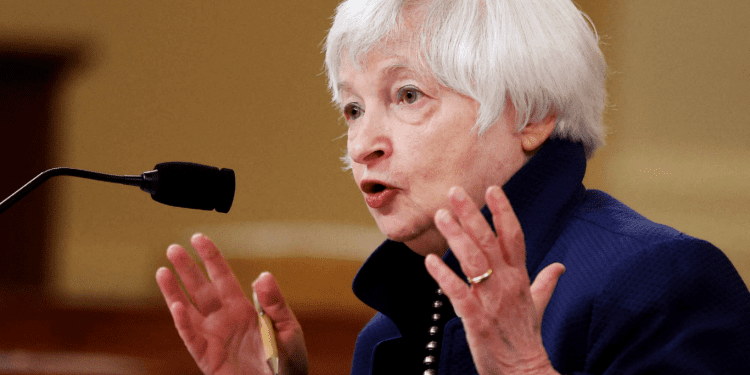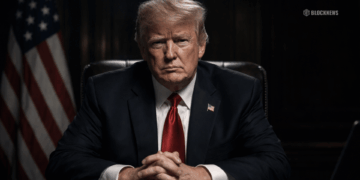- US Treasury Secretary Janet Yellen wants a “regulatory framework” for the crypto sector
- She said that her and regulators have not “suggested outright banning of crypto activities”
- To combat money laundering and further investor losses, she demands bettter and stricter regulations
Janet Yellen, the US Treasury Secretary, discussed the importance of crypto regulation in an interview with Reuters at the G20 meeting for finance ministers and central bank governors this weekend. With cryptocurrency increasingly becoming popular, Yellen clarified that the US is not proposing an outright ban but developing a robust regulatory framework.
Indian Finance Minister Nirmala Sitharaman has actively advocated for international cooperation on crypto regulation and encouraged other G20 members to develop a joint paper to establish “a coordinated and comprehensive policy approach” on crypto assets.
The Securities and Exchange Commission (SEC) has recently heightened its enforcement efforts against crypto firms in America, such as charging Kraken over its staking program, Nexo over its BUSD stablecoin issuance, Terraform Labs and CEO Do Kwon for defrauding investors.
At this week’s IMF executive board meeting, directors advised that “crypto assets should not be granted official currency or legal tender status,” Although outright bans should not be ruled out, establishing clear regulations is critical to prevent potential financial stability risks.
US SEC May Not Ban Crypto Anytime Soon
With the cryptocurrency sector continuing to boom, the US SEC is cracking down on violations of investor protections in the space. The SEC has stepped up enforcement measures, recently charging numerous crypto firms for various infractions, from fraud to violations of securities registration laws.
The SEC has emphasized that companies launching Initial Coin Offerings (ICOs) must comply with investor protection regulations, such as registering their tokens as securities and ensuring disclosures about the risks associated with their product offerings. The regulator also requires compliance with anti-money laundering rules and other financial reporting requirements from issuers and intermediaries that conduct ICOs.
In addition, the SEC requires companies dealing with cryptocurrencies to properly register their activities as broker-dealers or exchanges, depending on how they operate. This means that firms administering transactions through digital tokens must also follow know-your-customer (KYC) rules and keep customer data records.
The SEC also advises investors participating in ICOs to take extra precautionary measures when investing in new projects because they are often associated with high levels of risk and potential fraud. This includes performing due diligence by researching a project before investing any money, checking suspicious claims by promoters carefully, and only investing what one can afford to lose entirely.
While some people may view these regulatory requirements as burdensome or unnecessary obstacles for cryptocurrency participants, there is no doubt that these measures are necessary for setting a solid foundation for protecting investors and creating an environment where crypto innovation can thrive sustainably over time.
With too many sensible investors, crypto may only be able to survive with actual strong regulation from the government. It is still a much better option than a complete prohibition of using crypto.














